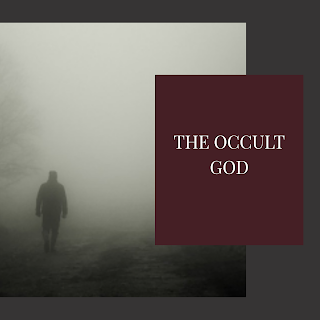THE OCCULT GOD
A
brief look at humanity and soon it is observed that it is immersed in a
profound process of pain, suffering and anguish. There are wars in the world,
rumors of wars, famine, disease and catastrophes. One might ask, "Where is
God?" Even among Christians, even among those who live a life of devotion,
in certain moments of pain and suffering, they feel an absence and silence from
God. How do you understand that? Is he oblivious to human suffering?
In
fact, the Old Testament often deals with the concealment of God. Smith (2001,
p.99) states that there are thirty-two references that say that God hides his
face, eyes, ears, and that He is hidden. Psalm 10:1, for example, says,
"whi Lord do you stand far off? Why do you hide yourselt in times of
trouble?" Isaiah says, "truly you are a God who has been hiding
himself, the God and Savior of Israel" (45:15). This concealment
"refers primarily to their inactivity on behalf of their worshipers and
the fact that God does not answer their prayers" (SMITH, 2001,
p.100).
We
really don't understand God's action. Even after his revelation to the prophets
and through the Son, that is, Jesus Christ, He remains a mystery. Atkinson
(2009, p.295) says that "the God revelatus still remains a velatus
God. Moses, Jacob, Job, the psalmists, and the prophets are all aware of the
fact that God is "hidden," even in his act of revealing
himself." He never shows himself in his real nature, in its essence, for
He is indiscernible to the fallen mind. John, in his Revelation, upon Him could
only say, "he who sits on the throne...". God is indescribable.
According
to Job, God is beyond our comprehension (37:23) and Isaiah speaks of our
inability to understand his thoughts (55:8,9). We only understand him from
ourselves, this is why there is an anthropomorphic language (the hand, the
face, the eyes, the ear of God) in the Bible. For this reason, He revealed
himself in human form in the Son. But even in this gesture, “But even in this
gesture, "God don't offers us a gift lesser than himself. This is the
supreme revelation, in which the hidden God is revealed. 'Whoever sees me sees
the Father'" (ATKINSON, 2009, p.296).
In
addition, with respect to suffering in the world, this is inherent in the path
that man took by turning away from God. The project of the fallen man is a
world without God. In his madness he says: there is no God, but this has a
price: pain, anguish and finitude. However, in moments of anguish he remembers
the Creator, but only hears a great silence. His own fall condition prevents
him from hearing God. But He did not leave humanity at the mercy of his
destiny, but in Christ he set a path back to his original condition of
perfection.
But
this concealment is also observed among many who call themselves Christians
who, seeking their own plans, think they can tame God. He, however, "is
not a prisoner of human thoughts or captives of his schemes." However,
even among godly believers the concealment of God occurs, perhaps because they
must walk paths alone. Jesus, on the cross, for example, felt this concealment
of the Father to the point of crying "My God, my God, why have you
forsaken me?" (Matthew 27:46).
Although
this aspect of the Being of God, its concealment, Scripture reveals that He is
sublime and loving, and attracts everyone. What, for example, does angels
continually stand before him in worship? At the same time that He is a God who
hides himself, He is a God who reveals himself. But the path to his presence,
to his perception passes through the heart, the immaterial, the illogical, the
faith. He spoke the following words to a prophet who experienced his
concealment at times: "call to me and I will answer you and tell you great
and unsearchable things you do not know."
Antonio
Maia - M. Div.
Copyright
ATKINSON,
J. Novo Dicionário de Teologia. São Paulo: Hagnos, 2009
SMITH,
Ralph L. Teologia do Antigo Testamento. São Paulo: Vida Nova, 2001



Comments
Post a Comment